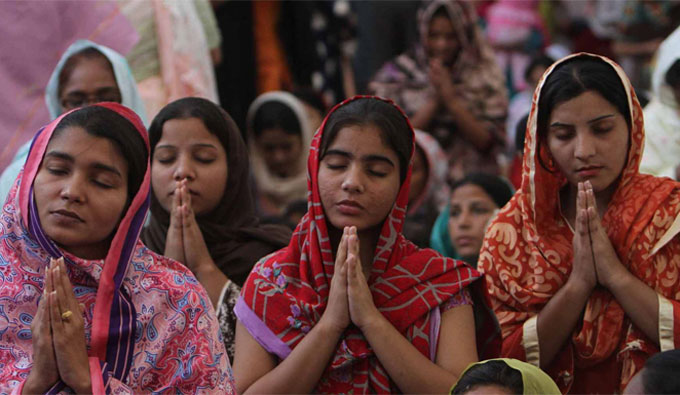Facing European Union’s enhanced scrutiny over its handling of human right issues particularly related to fake blasphemy cases, Pakistan is making frantic efforts to salvage its image. The country’s main concern is to ensure continuation of benefits under GSP plus scheme of EU. The facility, granted for ten years (2014-23), allows Pakistan duty-free access on over 66% of its exports subject to implementation of 27 core UN conventions on labour conditions, human rights, women & child rights, religious freedom, governance, etc. As the current framework expires in end- 2023, the EU is proposing to add 5 new conventions. To make matters worse for Pakistan, there are reports that European Parliament (EP) may even ask to increase the number to 11 new conventions.
The role of Pakistani institutions
Meanwhile, some groups of MEPs in the European Parliament (EP) have started to call out the dubious role played by Pakistani institutions in suppressing/manipulating information about discrimination against minorities. Identity and Democracy (ID) group in EP presented a motion in April 2022 for parliamentary resolution; highlighting human right abuses in Pakistan. The group has requested EP to include the agenda for a debate on cases of breaches of human rights, democracy and the rule of law in Pakistan.
The ID group further asserted that religious minorities in Pakistan including Christians continue to experience attacks and discrimination from extremist groups and the wider society. Christians who constitute a minority of less than 2% in Pakistan have to suffer discrimination, intolerance, persecution, blasphemy accusations, sexual assaults, forced conversions and forced marriages. The community was a target of at least 38 persecution incidents in the second half of 2020 alone. ID group also stated that the blasphemy laws are disproportionally implemented against religious minorities in Pakistan where at least 20 people convicted of blasphemy remain on death row. Christian and Hindu women in Pakistan are particularly vulnerable to abduction, rape and forced marriage. The motion has specifically pointed out the case of a Christian couple, Shagufta Kausar and Shafqat Emmanuel who were held guilty of sending blasphemous texts to a mosque cleric and sentenced to death in April 2014. The couple remains imprisoned since 2013. Blasphemy cases have recently been registered against two nurses, Newish Urooj and Mariam Lal.
ID group urged the EU member States and the European Commission (EC) to reassess Pakistan’s eligibility to benefit from the GSP plus and to receive aid from European countries. It also demanded that Islamabad protect, promote and respect the right to freedom of religion in accordance with its international obligations.
Parliamentary questions
The motion was followed by pointed questions from Filip De Man, a prominent MEP belonging to the ID group. Filip submitted (May 25) two Parliamentary questions on the intent and seriousness of Pakistan in dealing with human right violations. According to him, being an important trade partner of EU, Pakistan benefits from the advantages of GSP Plus. However, it is clear from Amnesty International’s 2021 annual report, that the country does not take the slightest notice of these terms and conditions, and that the ‘Change through Trade’ approach adopted by the EU institutions is based on a world view that is both utopian and naive. Filip further questioned the millions in development aid to a country whose government is guilty of persecuting followers of other faiths both within its own country and in those areas of Kashmir under its control as well as tortures opponents of the regime and oppresses women.
The MEP specifically queried about measures taken by the EC to bring pressure on the regime in Pakistan. Filip has also asked about the proposed steps the EC plans to take in the coming months to restrict the import of Pakistani products or raise import tariffs, at least until Islamabad complies with its obligations.
On its part, surrounded by the twin pressures of increasing burden of compliance and worsening human right conditions internally, Islamabad has resorted to its old practice of lobbying. Various Pakistani stakeholders including diplomats and businessmen have begun lobbying efforts to project a fake narrative around their ostensible willingness to improve upon the human right conditions in the country. As the next review is underway, Pak Embassies in Europe are actively trying to convince host countries for the continuation of the scheme. The Pak Mission in Brussels is also working to revive exchange of parliamentary visits/parliamentary contacts, activate regular interaction of Pakistan-Belgium Parliamentary Friendship Group to encourage personal exchanges among legislators of both sides so as to widen Islamabad’s outreach among European policymakers.
The powerful exporters lobby of Pakistan has also opened channels of communications with professional lobbyists active in Europe. A Sweden based firm, Kreab is apparently in touch with the the Pakistan Textile Council (PTC) on the issue. The firm has assured PTC to take up their case in Europe and ensure a favourable coverage for Pakistan. It remains to be seen whether Islamabad is able to secure a repeat of its earlier successes in shaping the opinion of EU policymakers or it is compelled to make some meaningful changes in its otherwise rather apathetic approach towards minorities.

